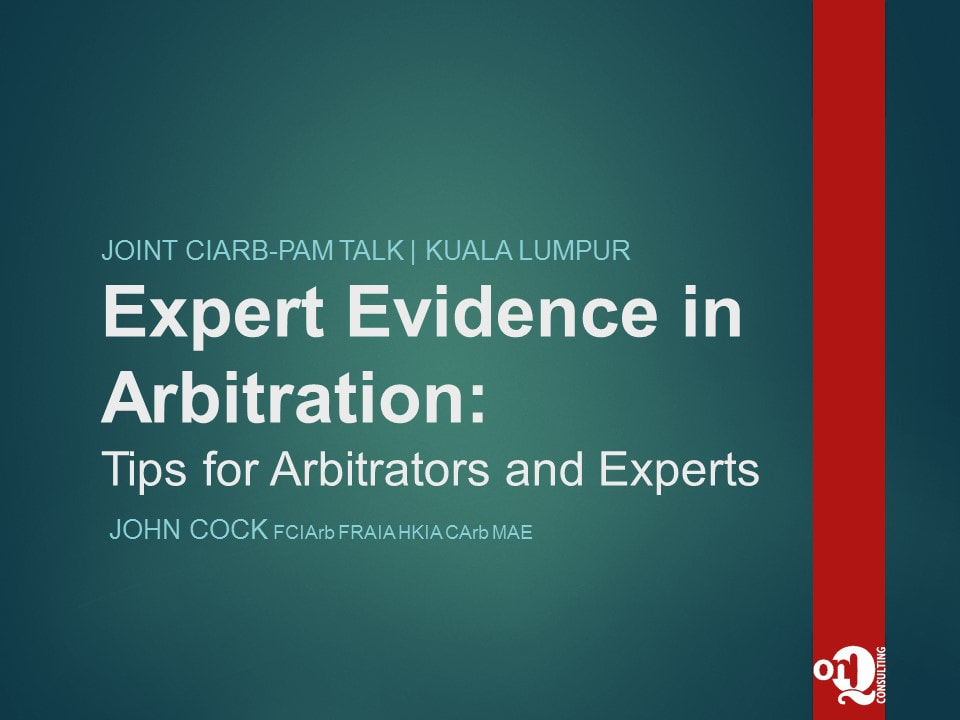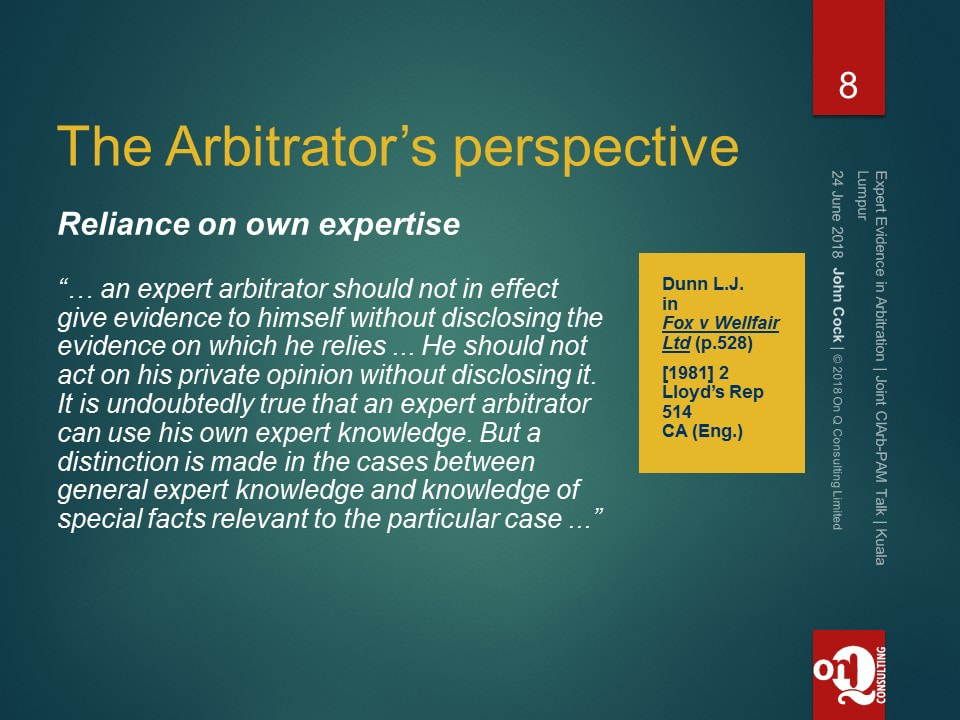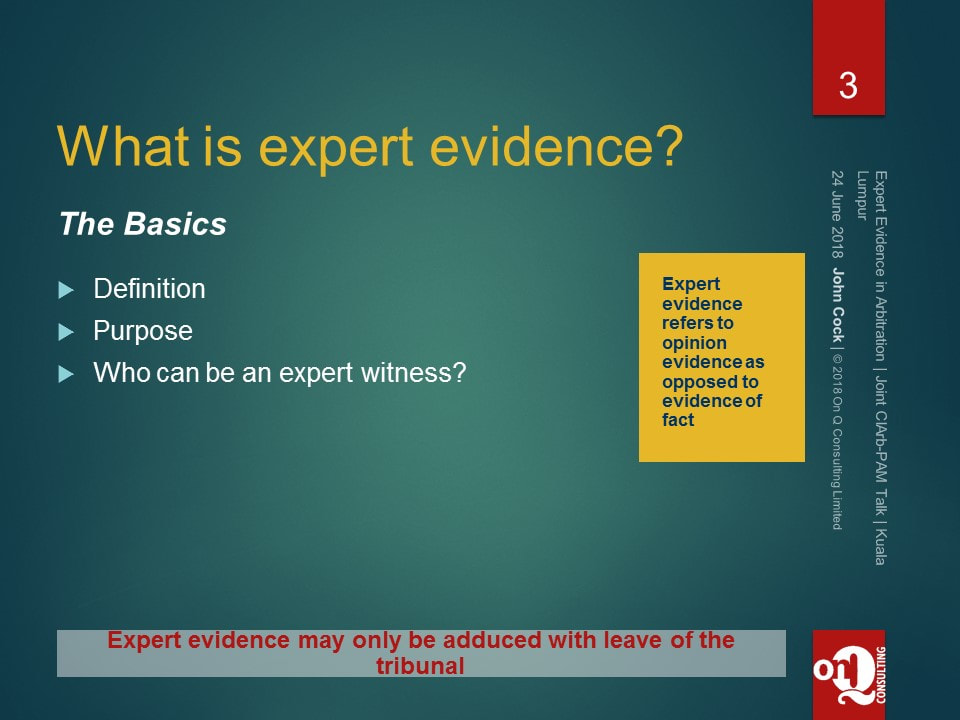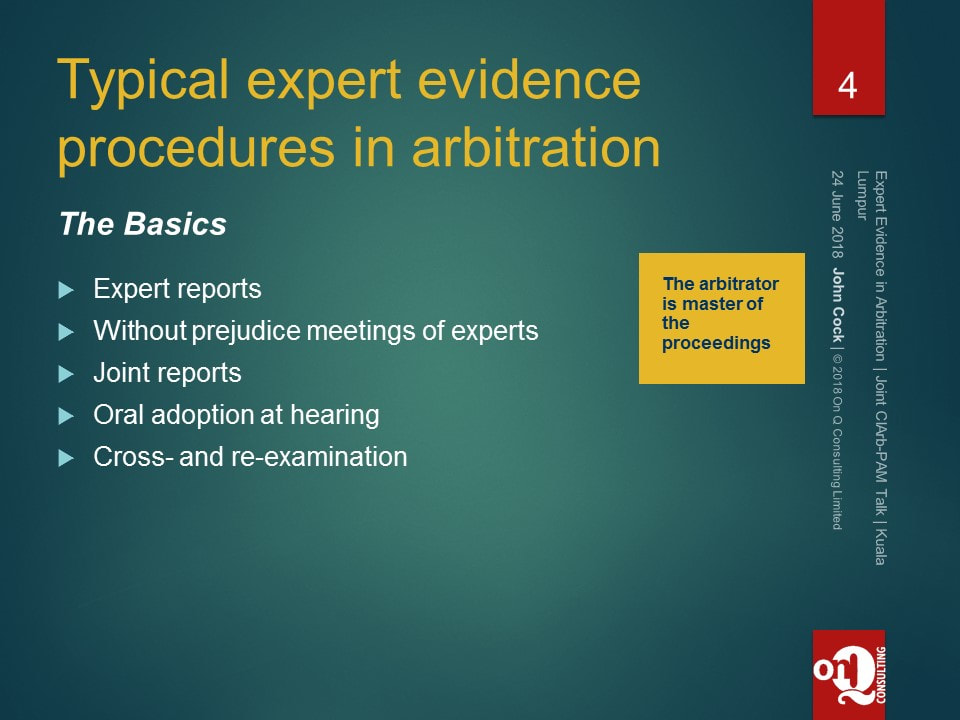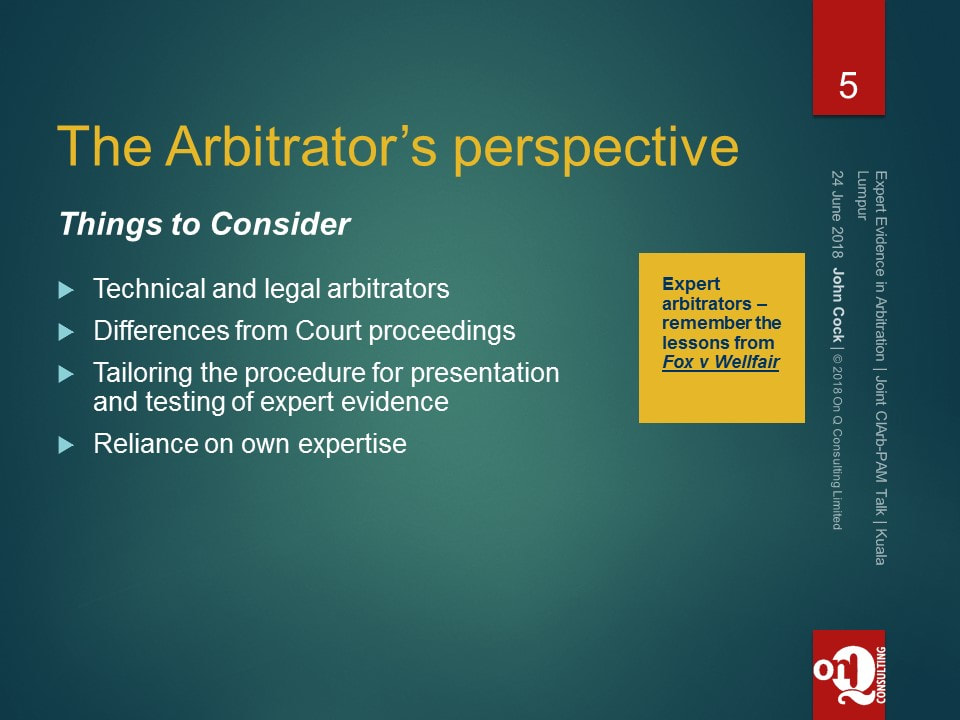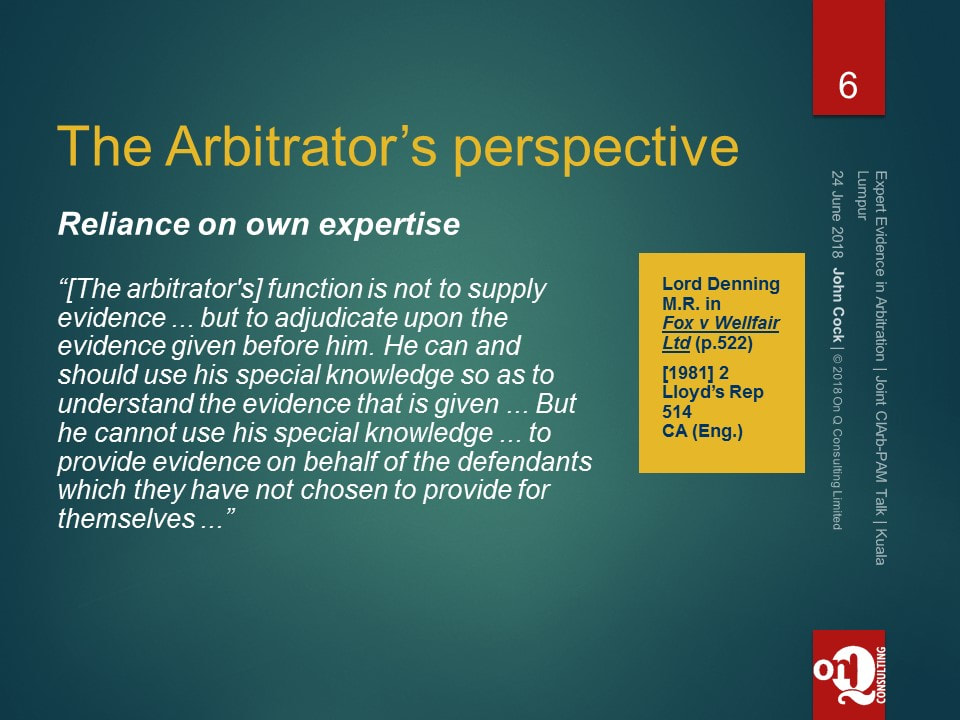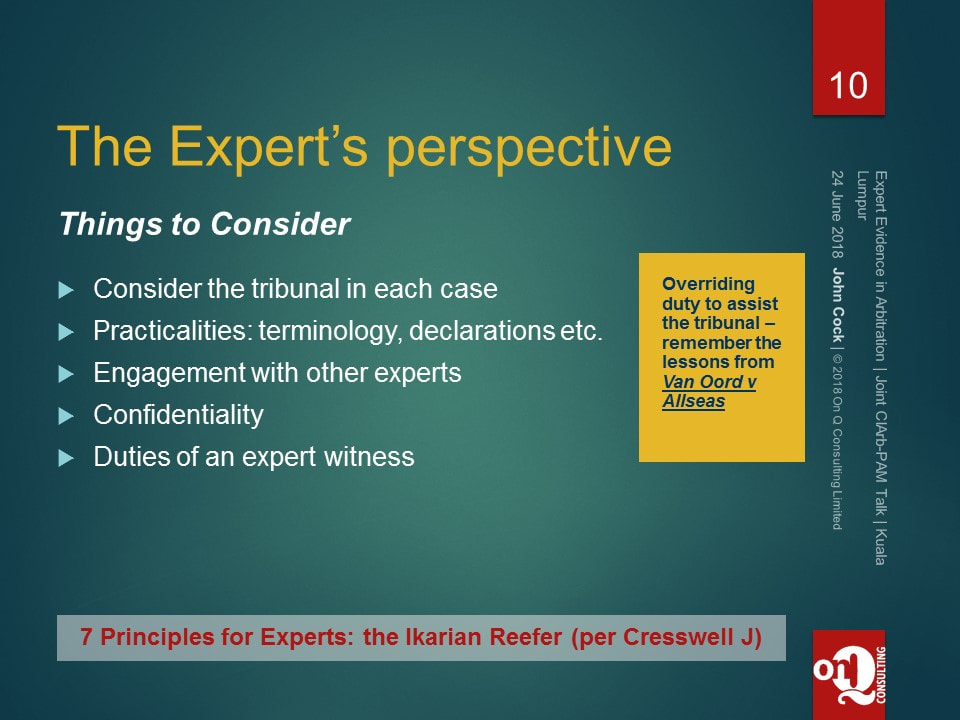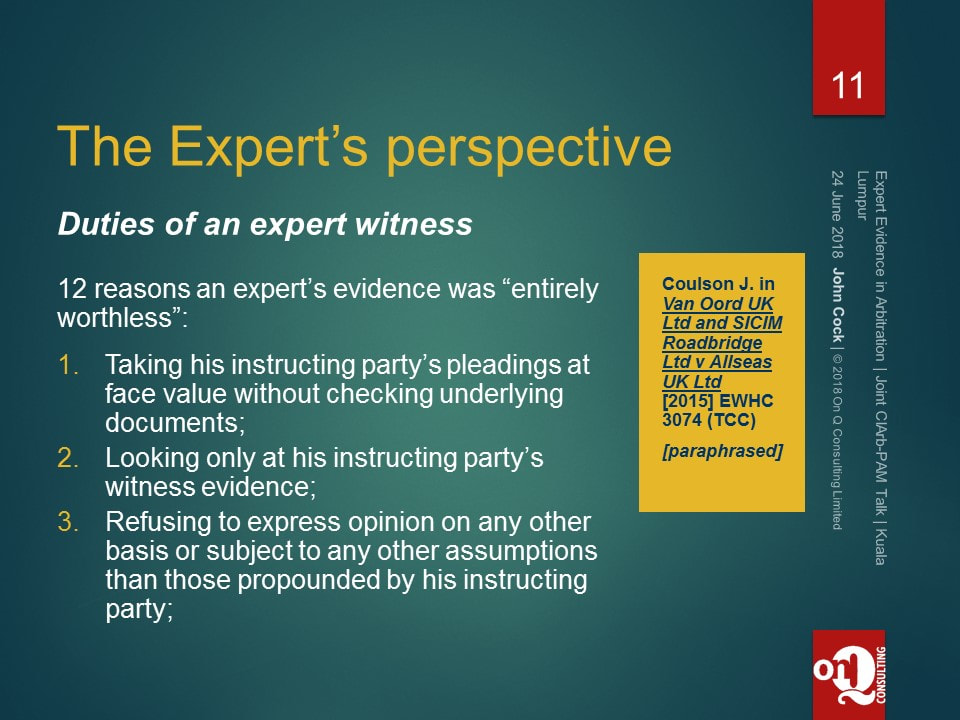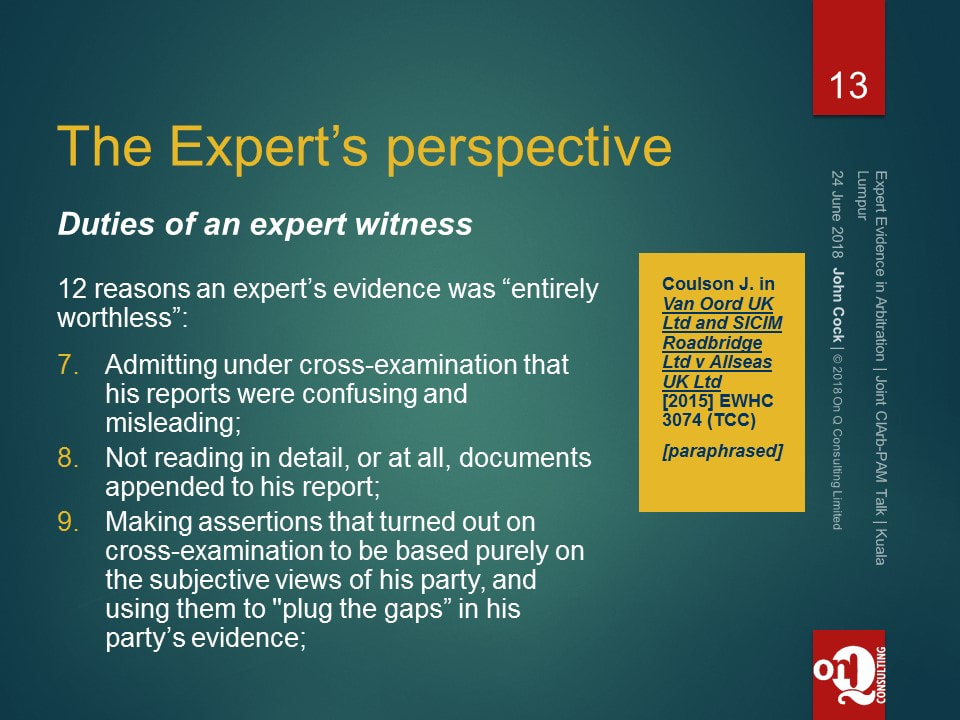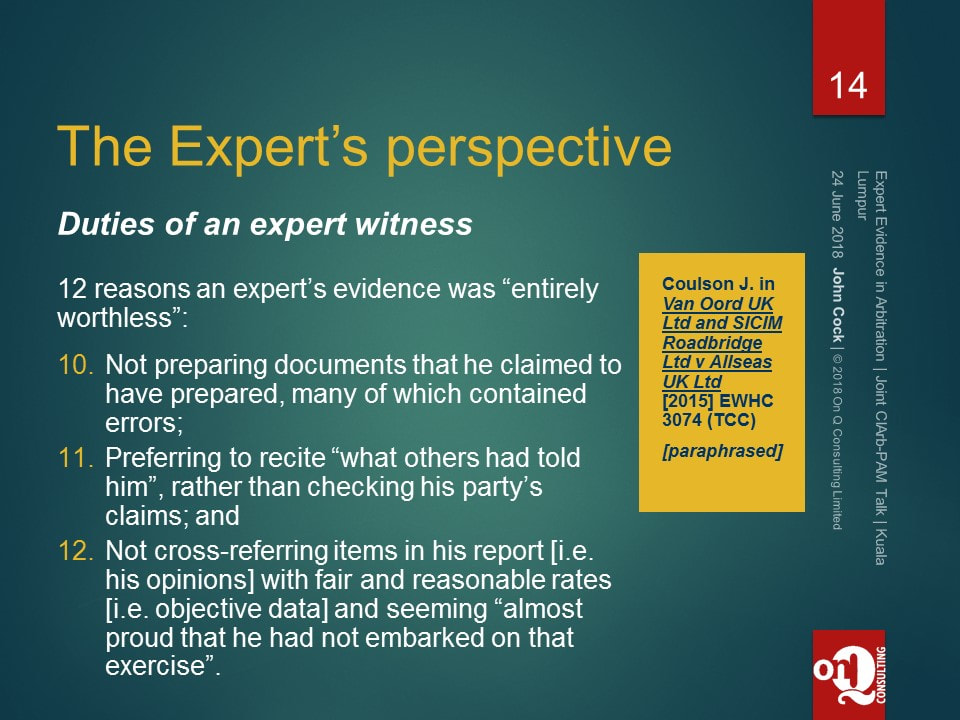Expert Evidence in Arbitration
Tips for Arbitrators and Experts
John Cock
FCIArb FRAIA HKIA CArb MAE
|
Who can be an expert? Kennedy v Cordia (Services) LLP [2016] – UKSC overturned Scottish CSIH finding that the expert’s evidence was inadmissible.
“[The arbitrator's] function is not to supply evidence ... but to adjudicate upon the evidence given before him. He can and should use his special knowledge so as to understand the evidence that is given ... But he cannot use his special knowledge ... to provide evidence on behalf of the defendants which they have not chosen to provide for themselves ...”
“[The arbitrator] should not use his own knowledge to derogate from the evidence of the ... experts – without putting his own knowledge to them and giving them a chance of answering it and showing that his view is wrong.”
“… an expert arbitrator should not in effect give evidence to himself without disclosing the evidence on which he relies ... He should not act on his private opinion without disclosing it. It is undoubtedly true that an expert arbitrator can use his own expert knowledge. But a distinction is made in the cases between general expert knowledge and knowledge of special facts relevant to the particular case ...”
“If the expert arbitrator, as he may be entitled to do, forms a view of the facts different from that given in the evidence which might produce a contrary result to that which emerges from the evidence, then he should bring that view to the attention of the parties.”
Lord Denning M.R. in
Fox v Wellfair Ltd (p.522) [1981] 2 Lloyd’s Rep 514 CA (Eng.) |
|
|
7 Principles for Experts: the Ikarian Reefer (per Cresswell J)
National Justice Compania Naviera SA v Prudential Assurance Company Limited (the “Ikarian Reefer”) [1993] 2 Lloyds Rep 68 (Cresswell J).
|
Duties and responsibilities of experts - 7 principles [summarised]:
1. Independent product uninfluenced as to form or content by the exigencies of litigation. 2. Expert should provide independent assistance to the court by way of objective, unbiased opinion - never an advocate. 3. State the facts or assumptions upon which opinion is based. He should not omit to consider material facts which could detract from his opinion. 4. Make clear when a particular question or issue falls outside his expertise. 5. If opinion is not properly researched because insufficient data available, this must be stated with indication that the opinion is provisional. If expert cannot assert that the report is the truth, the whole truth and nothing but the truth, qualification should be stated. 6. If expert changes view on a material matter having read the other side's expert's report or for any other reason, such change of view should be communicated (through legal representatives) to the other side without delay and when appropriate to the court. 7. Where expert evidence refers to photographs, plans, calculations, analyses, measurements, survey reports or other similar documents, these must be provided to the opposite party at the same time as the exchange of reports. |
|
12 reasons an expert’s evidence was “entirely worthless”:
1.Taking his instructing party’s pleadings at face value without checking underlying documents; 2.Looking only at his instructing party’s witness evidence; 3.Refusing to express opinion on any other basis or subject to any other assumptions than those propounded by his instructing party 4.Disregarding actual costs [i.e. facts] in favour of made-up or calculated rates [i.e. theories]; 5.Being caught out on cross-examination for making fundamental errors and not critically analysing his instructing party’s claims; 6.Admitting under cross-examination that he was unhappy with his reports 7.Admitting under cross-examination that his reports were confusing and misleading; 8.Not reading in detail, or at all, documents appended to his report; 9.Making assertions that turned out on cross-examination to be based purely on the subjective views of his party, and using them to "plug the gaps” in his party’s evidence 10.Not preparing documents that he claimed to have prepared, many of which contained errors; 11.Preferring to recite “what others had told him”, rather than checking his party’s claims; and 12.Not cross-referring items in his report [i.e. his opinions] with fair and reasonable rates [i.e. objective data] and seeming “almost proud that he had not embarked on that exercise”. |
|
|
“For these reasons, therefore, I consider that [the expert] allowed himself to be used by [his instructing party and its claims consultants] to act as their mouthpiece ...
It made a mockery of the oath which [he] had taken ... I am bound to find that [he] was not independent and his evaluations ... were neither appropriate nor reliable. I am obliged to disregard his evidence in full.” |
|

